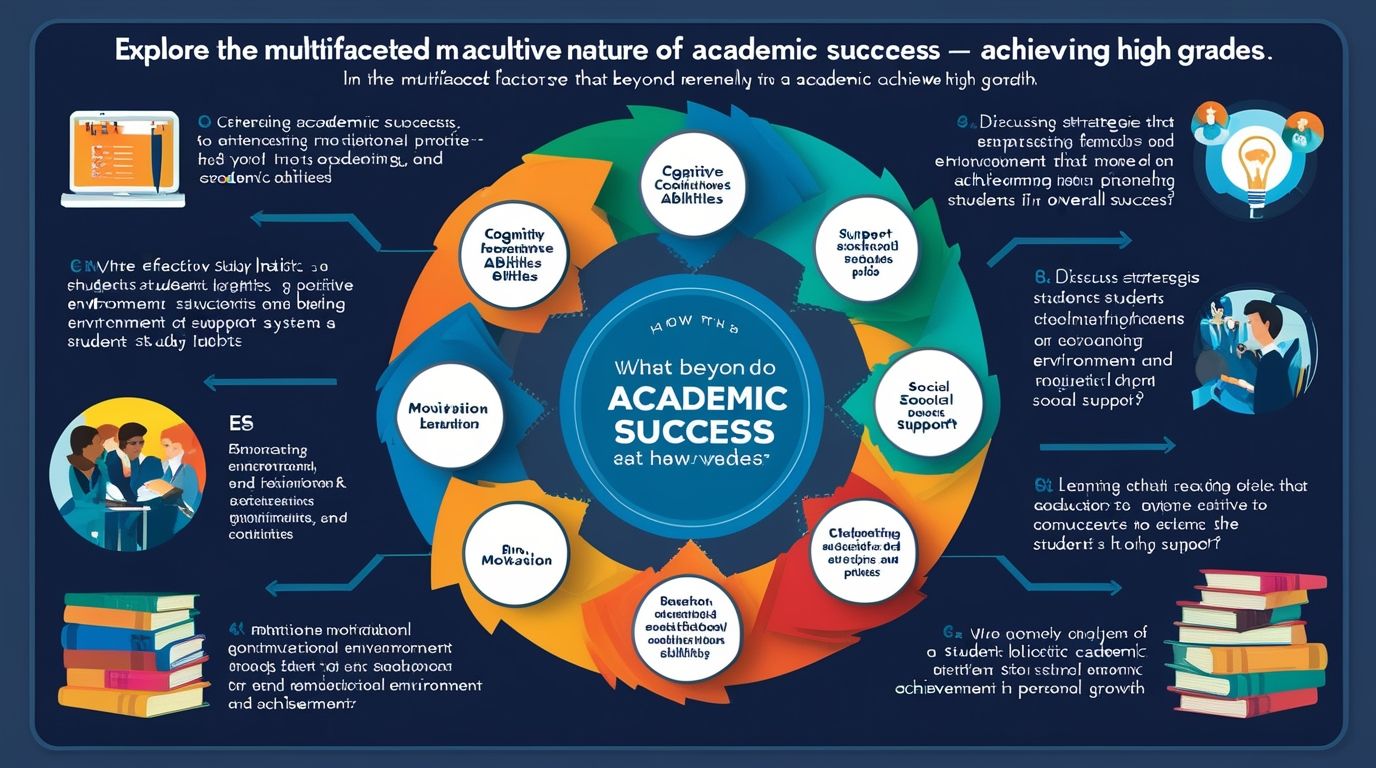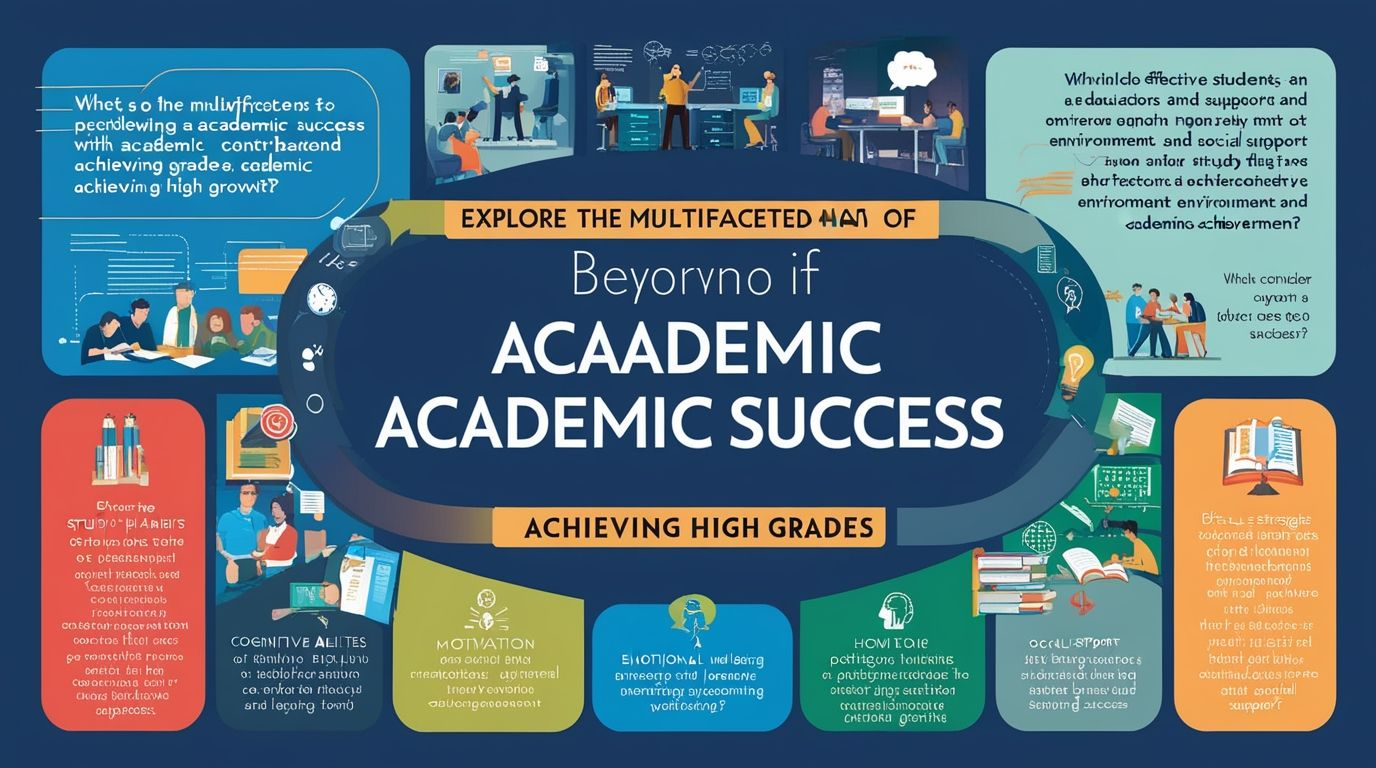Introduction
The Path to Academic Success Academic success is a multifaceted concept that extends beyond merely achieving high grades. It encompasses a range of factors including cognitive abilities, emotional well-being, motivation, and the quality of educational environments. Understanding what drives academic success and how to foster it can help students, educators, and policymakers create strategies to support effective learning and achievement. This article delves into the key factors contributing to academic success and explores strategies to enhance educational outcomes for students.
Key Factors Influencing Academic Success
1. Cognitive Abilities and Learning Styles
Cognitive abilities play a significant role in academic success. Students’ capacity to process, retain, and apply information affects their performance. However, academic success is not solely determined by innate intelligence; learning styles and strategies also play a crucial role. Some students may excel with visual aids, while others may benefit from auditory or kinesthetic learning techniques. Understanding and leveraging individual learning styles can enhance students’ ability to grasp and apply knowledge effectively.
2. Motivation and Goal Setting
Motivation is a critical driver of academic success. Students who are intrinsically motivated, meaning they find personal satisfaction and interest in learning, tend to perform better academically. Extrinsic motivation, such as rewards or recognition, can also be effective but often needs to be balanced with intrinsic factors. Setting specific, measurable, achievable, relevant, and time-bound (SMART) goals helps students focus their efforts and track their progress, fostering a sense of accomplishment and continuous improvement.
3. Emotional and Psychological Well-Being
Emotional and psychological well-being significantly impacts academic performance. Stress, anxiety, and depression can impede a student’s ability to concentrate, process information, and engage in the learning process. Creating a supportive environment that addresses mental health issues and promotes emotional resilience is crucial for academic success. Schools and educators need to provide resources and support systems to help students manage stress and maintain a positive outlook on their academic journey.
4. Family and Social Support
Support from family and peers is another crucial factor in academic success. A supportive home environment, characterized by encouragement, involvement, and open communication, contributes to students’ academic achievements. Additionally, peer relationships and social networks can provide motivation, emotional support, and collaborative learning opportunities. Schools can facilitate this support by encouraging parental involvement and fostering a positive, collaborative atmosphere among students.
5. Effective Teaching Strategies
Effective teaching strategies are essential for facilitating student learning and academic success. High-quality instruction that is engaging, relevant, and adapted to students’ needs can enhance learning outcomes. Techniques such as differentiated instruction, formative assessments, and active learning promote deeper understanding and retention of material. Teachers who employ a variety of instructional methods and provide timely feedback help students stay engaged and on track.

Strategies to Enhance Academic Success
1. Developing Strong Study Habits
Developing effective study habits is vital for academic success. Techniques such as time management, organization, and active study methods (e.g., summarization, self-testing) help students maximize their learning efficiency. Encouraging students to create study schedules, set specific goals, and use study aids can improve their ability to retain information and perform well in assessments.
2. Creating a Positive Learning Environment
A positive learning environment fosters academic success by promoting engagement, respect, and a growth mindset. Classrooms that are inclusive, supportive, and stimulating encourage students to participate actively and take intellectual risks. Teachers should create a safe space for students to express their ideas, make mistakes, and learn from them. Building a classroom culture that values curiosity, resilience, and mutual respect enhances students’ overall learning experience.
3. Utilizing Technology and Resources
Technology and educational resources can significantly enhance academic success. Tools such as educational apps, online resources, and interactive software provide additional support and enrichment opportunities. Technology can also facilitate personalized learning experiences, allowing students to progress at their own pace and access resources that match their learning needs. Educators should integrate technology thoughtfully, ensuring that it complements and enhances traditional teaching methods.
4. Encouraging Lifelong Learning
Fostering a mindset of lifelong learning can contribute to academic success and personal growth. Encouraging curiosity, self-directed learning, and the pursuit of knowledge beyond the classroom helps students develop critical thinking and problem-solving skills. Educational institutions can promote lifelong learning by offering opportunities for enrichment, professional development, and exploration of diverse interests.
5. Implementing Support Systems
Implementing support systems within educational settings helps address individual challenges and promote academic success. Academic advisors, counselors, and tutoring services provide additional support to students who may need extra help or guidance. Schools should also offer programs that address specific needs, such as learning disabilities, language barriers, or social-emotional issues. Providing tailored support ensures that all students have the resources they need to succeed academically.
6. Fostering Collaboration and Communication
Encouraging collaboration and open communication among students, teachers, and parents is crucial for academic success. Collaborative learning environments, where students work together and share knowledge, enhance their understanding and retention of material. Regular communication between educators and parents ensures that both parties are aware of students’ progress and can work together to address any issues or challenges.
7. Promoting Health and Well-Being
Academic success is closely linked to physical health and overall well-being. Schools should promote healthy habits, such as regular exercise, balanced nutrition, and sufficient sleep, as these factors impact students’ cognitive functioning and ability to learn. Programs that address physical and mental health, along with opportunities for physical activity and relaxation, contribute to students’ overall success and well-being.
Conclusion
Academic success is a multifaceted achievement influenced by cognitive abilities, motivation, emotional well-being, social support, and effective teaching. By understanding and addressing these key factors, educators, students, and families can work together to create an environment that supports learning and achievement. Implementing strategies such as developing strong study habits, creating a positive learning environment, utilizing technology, and fostering collaboration can significantly enhance students’ academic performance. As we continue to evolve in the educational landscape, prioritizing the holistic development of students and addressing their diverse needs will remain essential for achieving and sustaining academic success.

5 thoughts on “The Path to Academic Success”
Comments are closed.